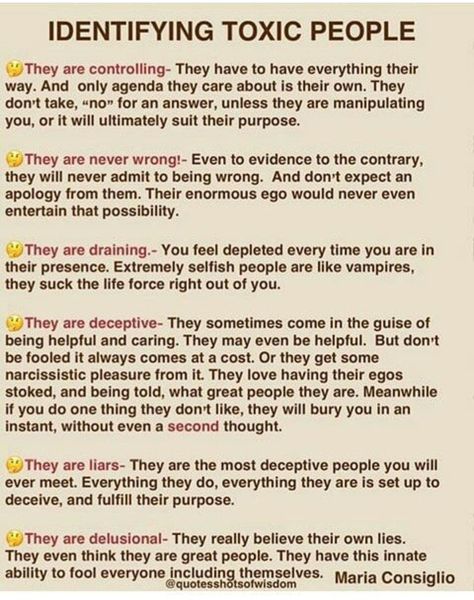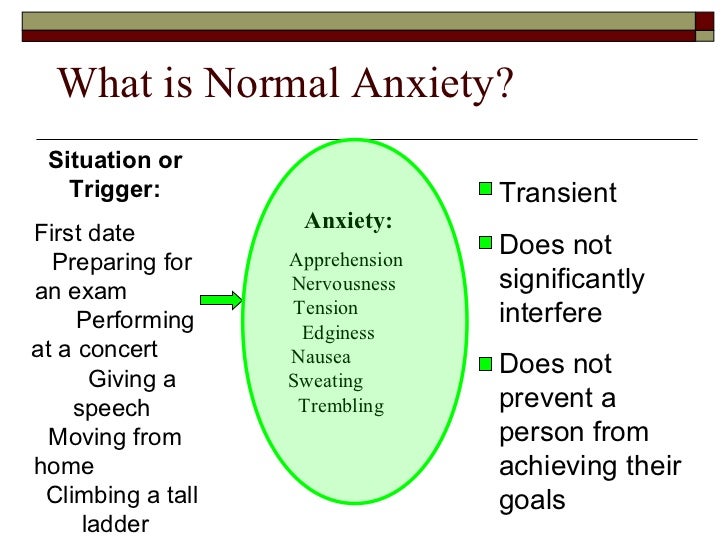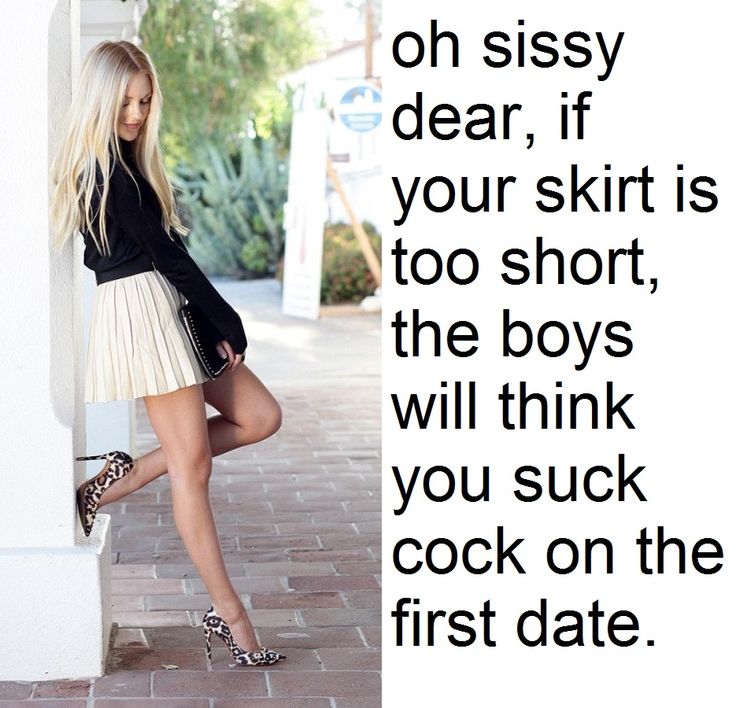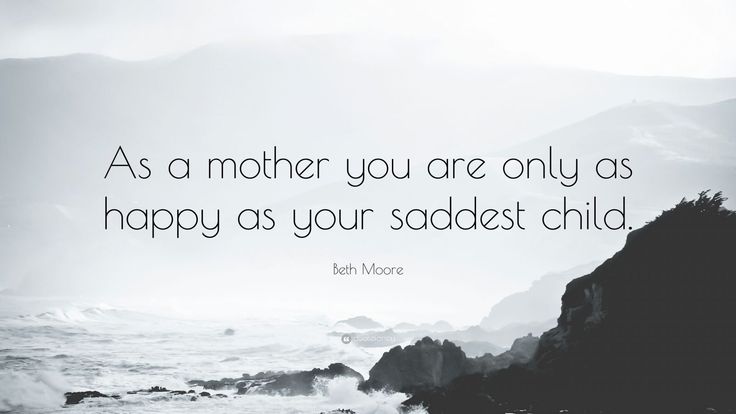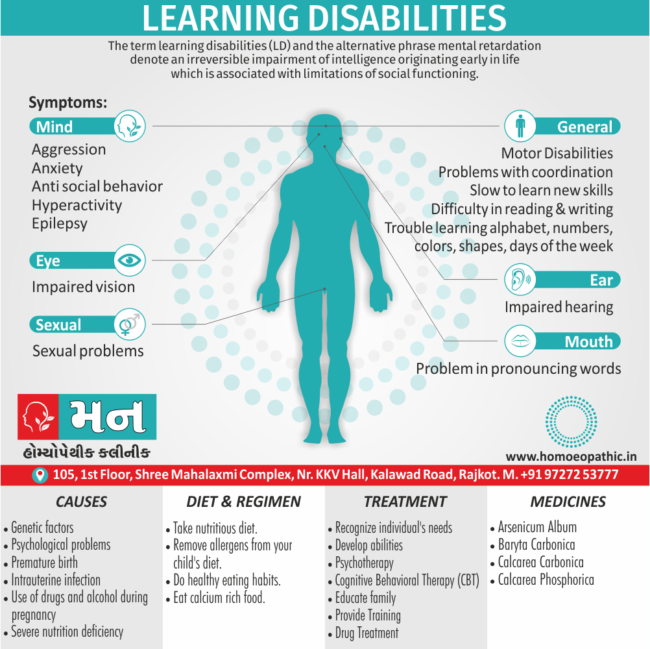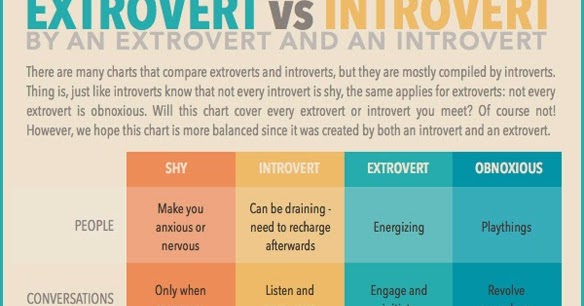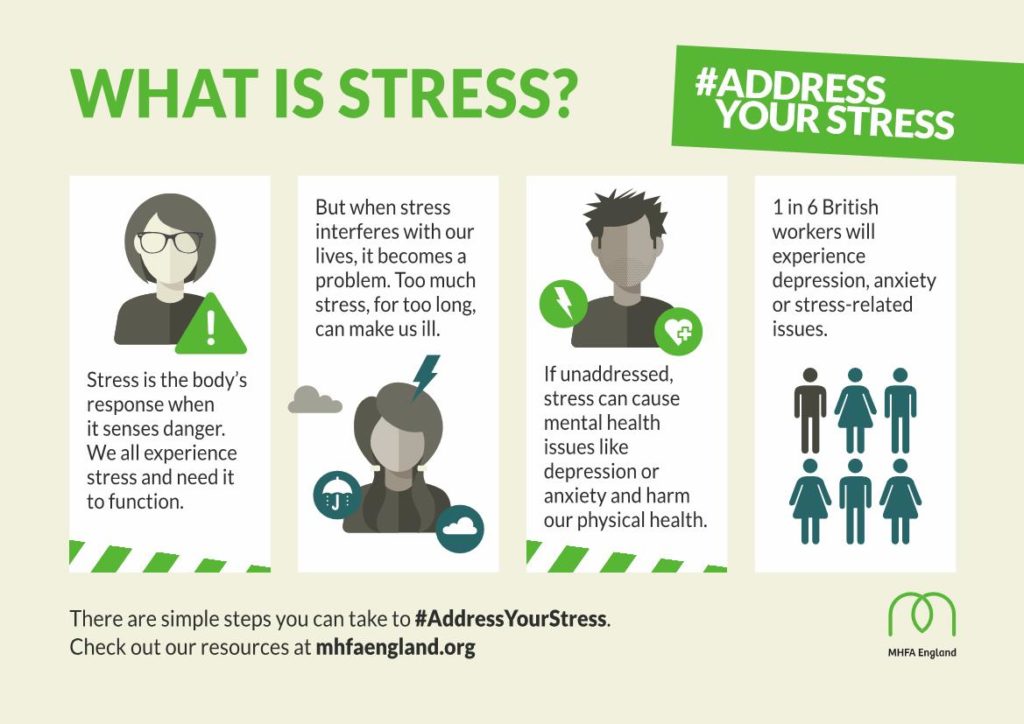Apologize for being toxic
I’ve Been A Toxic Person, And I’m Trying To Be Better
I’ve been a toxic person. I know that. I am not perfect, and I have not always been perfect. I’m forty years old and still maturing, so while I know I’ve been less perfect in the past, I still have a long way to go. I do my absolute best never to be a toxic person. I don’t want to be a sucking ball of negativity; I don’t want to make people feel bad about themselves; I don’t want to hurt them.
But I have. And I’ve done it to people I care about a lot. So this Facebook meme really hit me in the feels:
Yeah, that about says it. I’m still growing up. I’m still figuring out where my wrongs are and slowly becoming better. But I’ve hurt people in the past, and I know it.
The First Step Is Admitting It
I’ll say it again: I’m forty and I don’t have my shit together. I’ve got a plane-full of baggage. But part of growing up is taking out that baggage and looking at it. I realized I needed more than psychiatric meds and found a trauma therapist. She’s helping me reorder my life’s narrative: what happened to me when and why. Why do I do the things I do? Where do my responses come from? I started to take responsibility for my life when I realized that I really wasn’t getting my shit together, and I needed to do that, like, stat.
And part of rewriting my narrative is not only realizing that I was traumatized, but also realizing yeah, I could be a bad person sometimes. Most of that came from my trauma. That explains the behavior. But it doesn’t excuse the behavior. I hurt people along the way. All of us hurt people along our journeys. Every. Single. One. Of. Us. At someone point, each one of us has been a toxic person to someone.
Admit it.
Understand Who You’ve Been A Toxic Person For
God, I’ve been a toxic person. I was horrible to my brother (then sister) when he called me at college and told me he’d come out as a lesbian to our parents. My mother had already called and railed about it.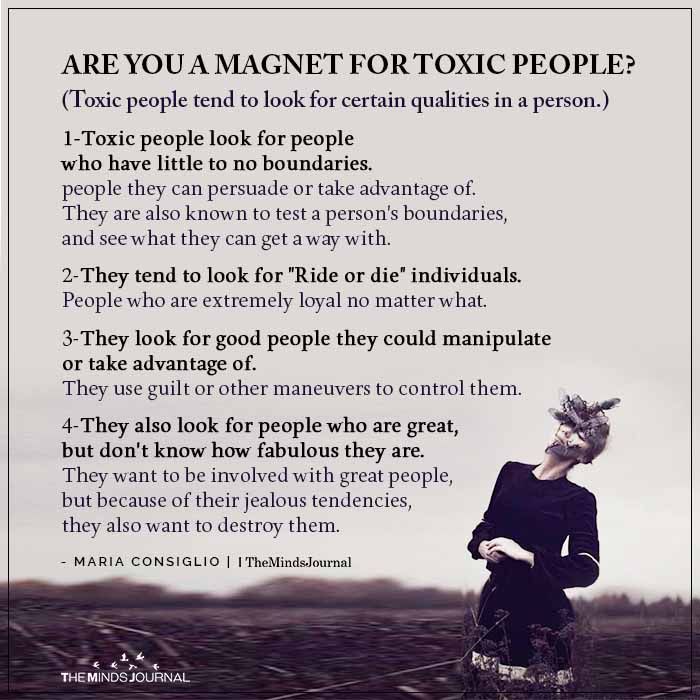 A consummate narcissist, my mother’s golden child momentarily became the scapegoat when he showed himself as less-than-perfect (because, of course, “lesbian daughter” didn’t fit my mother’s image of perfection). I was scared of my mother, scared for my brother, scared my dad would call me next, and wanted the whole goddamn thing to end.
A consummate narcissist, my mother’s golden child momentarily became the scapegoat when he showed himself as less-than-perfect (because, of course, “lesbian daughter” didn’t fit my mother’s image of perfection). I was scared of my mother, scared for my brother, scared my dad would call me next, and wanted the whole goddamn thing to end.
So I fell for my mother’s triangulation. That does not excuse what I did. It only explains why when my brother called, I reamed him out. Why couldn’t you have waited for college? Did you have to tell them now? Do you know what shit I just had to hear from Mom about this?
My brother had just done one of the scariest things in his life. He deserved someone to say, “I care, and I’m sorry they’re horrible.” Despite our very fraught relationship, despite our differences, despite the ways our parents pitted us against each other, I should have handed him that. I had gay friends I cared deeply for. I wasn’t an idiot: I knew what homophobia looked like.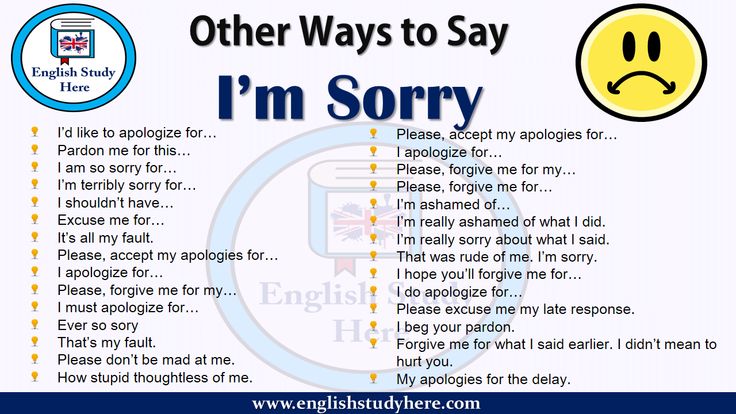 But I was still that toxic person for my brother. I own it. I’d tell him, but he hates me now.
But I was still that toxic person for my brother. I own it. I’d tell him, but he hates me now.
I know that moment plays a part. And while a lot of my brother’s dislike is misearned, there’s a lot of crossed wire and misunderstandings there, that is not one of them.
I Was A Toxic Person To Kids Who Wanted Acceptance
I could be a real bitch in college. I was too weird to be an archetypal mean girl, but I also lived in a artsy dorm where weird was king, so I was elected prom queen. That’s some serious mean girl bonafides. I had a lot of friends — and by “friend,” I mean “person I hung out with,” not “person I could depend on.”
One of my greatest regrets of college: I was a mean girl to K and H.
Before we understood that autism exists on a spectrum from nonfunctional to functional but non-neurotypical, before we knew the word “neurotypical,” let alone its opposite, before we understood the concept of making space for the non-neurotypical, K. had high-functioning autism. They identify as autistic now. But none of us understood that K. and H.’s sometimes loud voices, their obsessions, and their tendency to blurt out things — these were all expression of their autism.
had high-functioning autism. They identify as autistic now. But none of us understood that K. and H.’s sometimes loud voices, their obsessions, and their tendency to blurt out things — these were all expression of their autism.
That does not excuse me being a toxic person to them. I’m offering an explanation, but that explanation in no way mitigates my culpability for making them feel less than in a hundred little ways. H. was bullied so badly by other students that he died by suicide. I share some blame in that bullying. I was one of the toxic people that made him feel he wasn’t worth living. His death slammed me. I knew immediately, despite my incredible emotional immaturity: I helped that.
K. is now a dear friend of mine. They’ve been kind enough to forgive me. I don’t know what the fuck I did to deserve it. Maybe they knew all along that my severe ADHD and their ADHD and autism gave us a lot in common. Maybe they were willing to see past my toxic behavior to a person capable of kindness.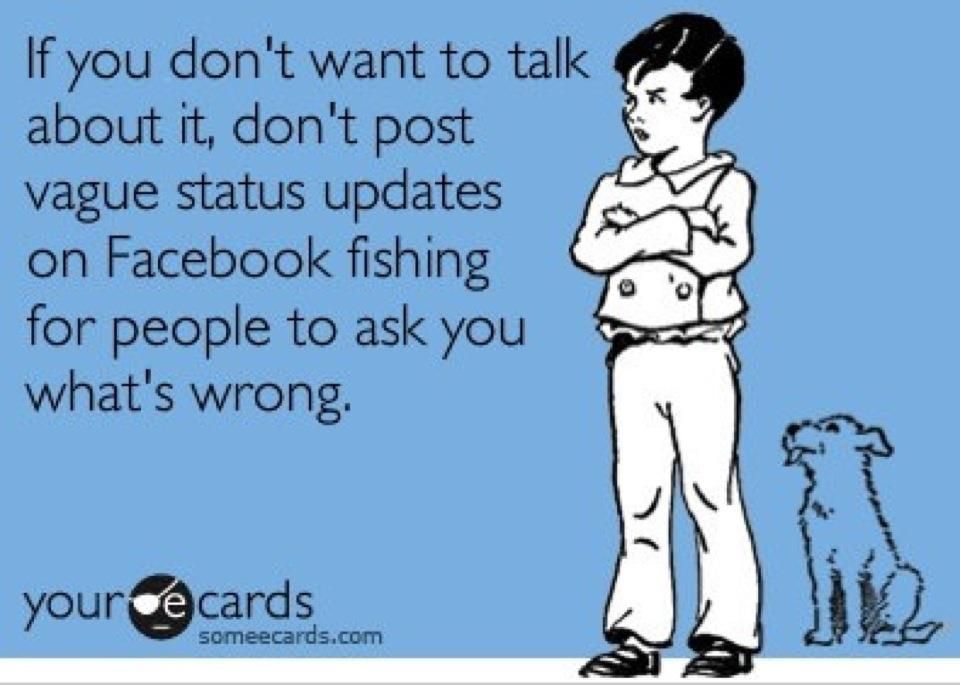 Maybe when we both really needed kindness, and we were there for each other, that was enough. I’ll never know.
Maybe when we both really needed kindness, and we were there for each other, that was enough. I’ll never know.
But I’m so grateful they’ve forgiven me. And I’m so grateful for their friendship, in ways that they’ll probably never know.
These aren’t the only people I’ve been a toxic person for. But they’re some of them.
Own Your Toxic Behavior
Once you figure out how you’ve been a toxic person, you need to own it. It’s scary to know that people will read: I was a homophobic bitch to my brother. I was an ableist asshole to two kids, one of whom died by suicide because of bullying. I’ve laid a lot of things bare, but those are two of the scariest, and I do it not only to apologize, but also because I hope people will see those examples and think hard about their own behavior.
It’s important to realize who was toxic to us. We need to take stock of our lives and ask: Who adds joy and support? Who drags me down with their criticism or negativity? Who fills my bucket and who dumps it out? Who gives me spoons and who snatches them away? But we also need to look at the times we have dragged people down.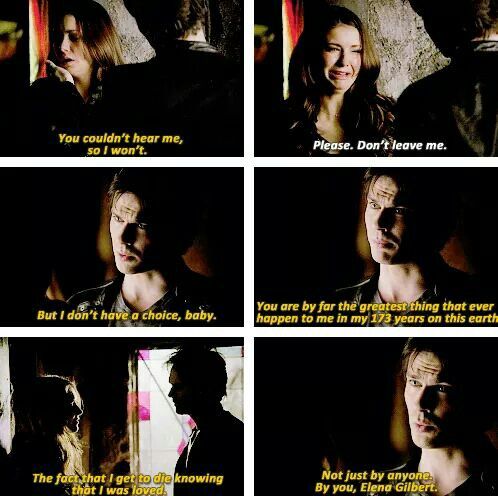 When have we dumped other people’s buckets? When did we take their spoons away?
When have we dumped other people’s buckets? When did we take their spoons away?
Then own your behavior and fucking apologize. It’s hard and it’s scary. You can only say, “I’m sorry.” You are not owed forgiveness. You are not owed an “It’s okay.” You can only live in certainty that you’ve done what you could. Growing up means realizing you can’t fix everything, and “sorry” doesn’t make it okay.
But “sorry” can help you grow. It might not heal a relationship. It doesn’t excuse behavior. But when you realize you’ve been a toxic person and apologized, you change. That apology isn’t just meant to help whoever you wronged.
It’s for you, too.
This article was originally published on
How to Apologize Well and Repair a Relationship
People are sorry all over the place.
Some apologies are demanded. Some are expected. Some are politically played.
There’s a new celebrity apology every month and some get it right and some may never recover.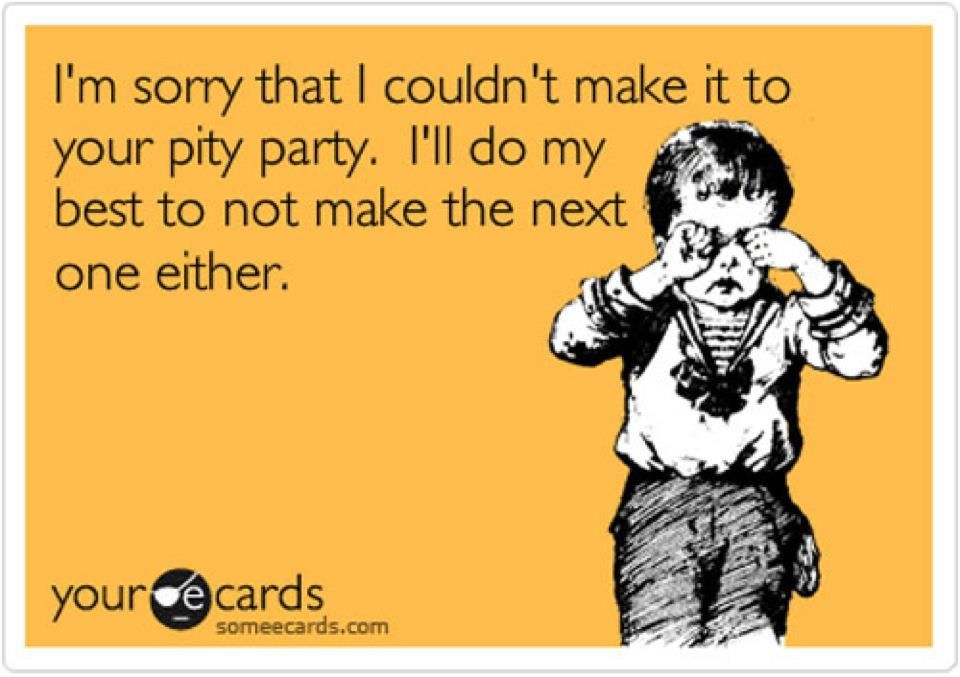
There are angry and flippant apologies, “I’m sorry, Ok?!?!”
There are fauxpologies, “I’m sorry that you feel that way.”
There are meme apologies, “Sorry, not sorry.” There’s the whiny apology, “But I said I’m sorry!”
There are apologies for indecisions, interruptions and bumping into people. Some people apologize out of habit, but really it may be out of insecurity. They may be overcompensating for fear that they have offended someone when in fact they haven’t.
What is an apology?
The dictionary defines an apology as, “a regretful acknowledgment of an offense or failure.” I believe it’s necessary when you know that you did something that hurt someone, whether it was intended or unintentional.
Beware the Fake Apology
Often those above apologies land flat, seem inauthentic and lack any significant meaning. In many of these cases, no apology is better than a fake, insincere or overstated apology. In fact, those could do more harm to a relationship than any good.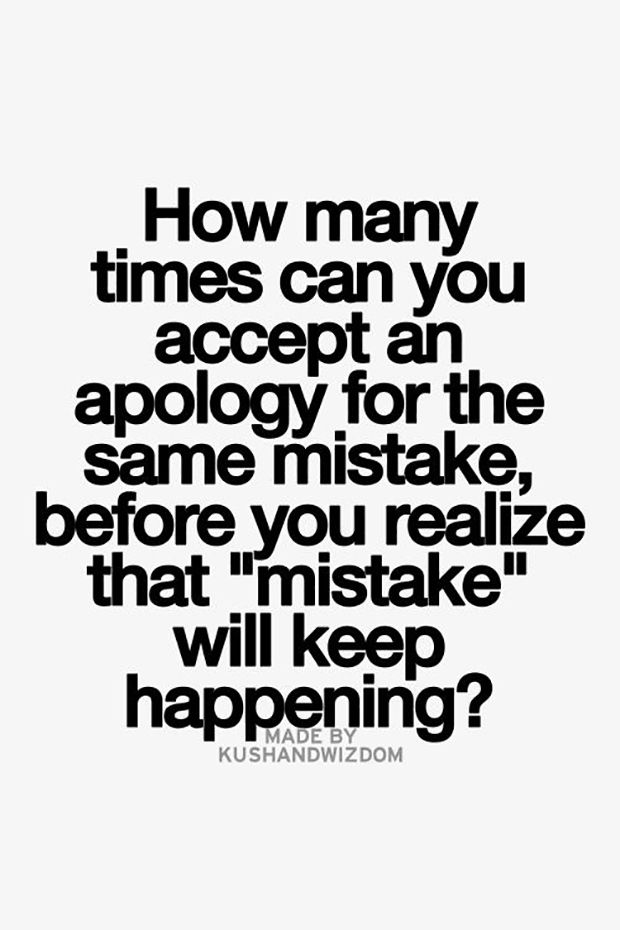
But what makes a good apology?
We all know that talk is cheap. Researchers from Ohio State University found that the more elements an apology contained, the more credible, effective, and adequate it was perceived to be.
The researchers identified six major components of an apology:
- Express regret
- Explain what went wrong
- Acknowledge responsibility
- Declare repentance
- Offer repair
- Request forgiveness
The research found that the most important component was to acknowledge responsibility (admitting you made the mistake), and the second most crucial is an offer of repair.
Let’s unpack each one of these, and I’ve added a few more.
Timing is important
The sooner you can offer a sincerely felt apology, the sooner you can help your loved one begin to heal. The longer you wait, the more you risk causing excessive pain and perhaps long-term damage.
Express regret
Whether your actions were unintentional or on purpose, you harmed someone you care about.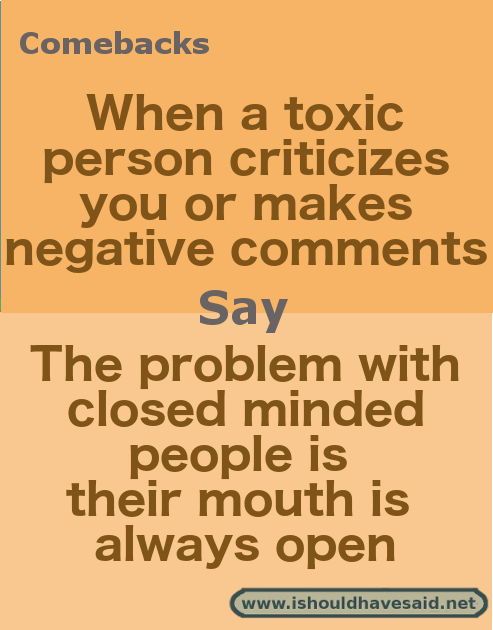 If they have any significance whatsoever to you, you owe them an apology.
If they have any significance whatsoever to you, you owe them an apology.
Like Elton John sang, “Sorry seems to be the hardest word…” But this is the place to start. Start by simply saying you’re sorry.
Apologies are best-delivered face-to-face, preferably with eye contact. If that’s not a possibility, take the time and write it out. This is often practiced particularly when the person is no longer available or deceased.
Explain what went wrong
Keep it simple and to the point. You don’t want to make excuses here or excuse your actions. Just state the facts. Show what the motivations were behind your ill-received actions.
Be patient
You need to be patient with the person you are apologizing to. All too often I see someone attempting to make an apology in order to “fix it” right away. They do this because they don’t want the other person to feel any pain.
I can understand that but consider this. If they are in pain, they need to work it out.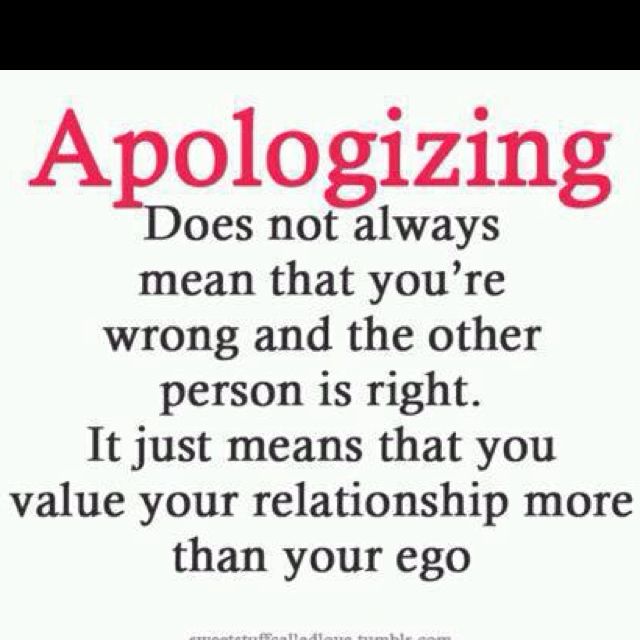 Give them the time and the grace that they need to move through their upset and to get to forgiveness.
Give them the time and the grace that they need to move through their upset and to get to forgiveness.
Acknowledge responsibility
A true, heartfelt apology takes some level of courage. To admit that you were wrong, share your shame and take responsibility for your actions is a vulnerable place to be.
According to Aaron Lazare, author of “On Apology,” he states that in acknowledging your shame and wrongdoing you give the offended the power to forgive. It is this exchange that is at the heart of the healing process.
Declare repentance
While the word repentance may bring up religious ideas, it’s really about the sincerity of regret and remorse. Repentance is an honest, regretful acknowledgment of the wrongdoing with a commitment to change.
Repentance is a declaration that you suffered either in shame, guilt or anxiety over the potential loss of the relationship.
Offer repair
If circumstances of your wrongdoing warrant it, you may need to make amends and offer repair.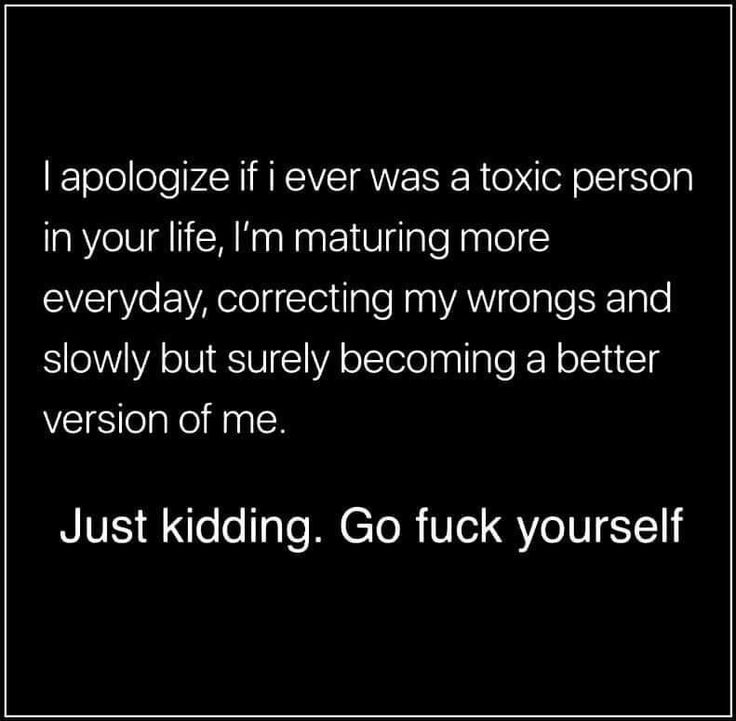 What can you do to make up this wrongdoing? What can you do to set it straight? By doing so you’re trying to make things right and heal the damaged relationship.
What can you do to make up this wrongdoing? What can you do to set it straight? By doing so you’re trying to make things right and heal the damaged relationship.
In a sense, this portion of the apology is making reparations or settling a debt. You may need to pay for the missing or broken item or take your friend out to lunch. Show your thoughtfulness and in some situations, you may need to ask, “Please let me know if there is anything I can do?”
Settle the case to make it right but to also clear your conscious.
Right actions in the future are the best apologies for bad actions in the past. – Tryon Edwards
Ask forgiveness
This may be the hardest part of the apology because there is always the chance that the person you are asking forgiveness from may say no. This is also a moment of vulnerability because they see you for who you are (flaws and all).
Maybe you’ve let them down too many times before. What if the offense just simply crossed the line for them and there’s no going back?
Understand that they may not be open to your apology right now
Some may just not be able to forgive.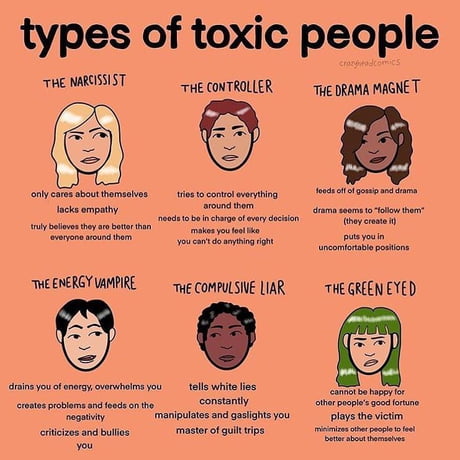
For those that don’t forgive you, really listen to what they have to say. Empathize and have compassion for their feelings, after all, you had a hand in the situation. They may be in pain and suffering emotional damage. However, it’s up to them to let go of their hurt or anger and that may take some time.
For many forgiveness may be a marathon, not a sprint.
Can you correct your behaviors to ensure that it doesn’t happen again? Can you forgive yourself? What can you learn from this situation, forgiven or not?
A proper apology shows good character, shows true remorse, a willingness to be vulnerable, and communicates that your relationship with this person with the other is truly meaningful to you.
Conduct a good apology and hopefully, the relationship can be repaired and trust can be regained. Better for them. Better for you.
In the end, we’re all human and can make mistakes. If you ever need guidance or support during challenging times, I invite you to contact me for a 15-minute consultation.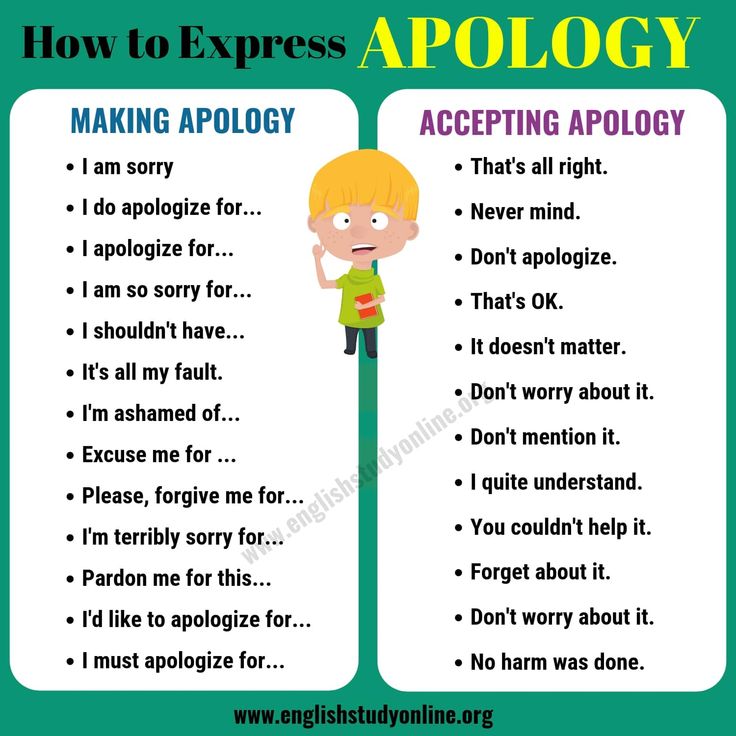
3 signs of "toxic" work - Work.ua
Teamwork
- 112
- 45916
- Teamwork Self-development
How do you know if you have a "toxic" job? - Check if it has the three signs of "toxicity" described in the article on Work.ua.
The environment you are in can really affect your emotional health, personal life and work productivity. If at work, where a person spends most of his time, "the situation is still the same", then it will certainly affect the well-being of the employee.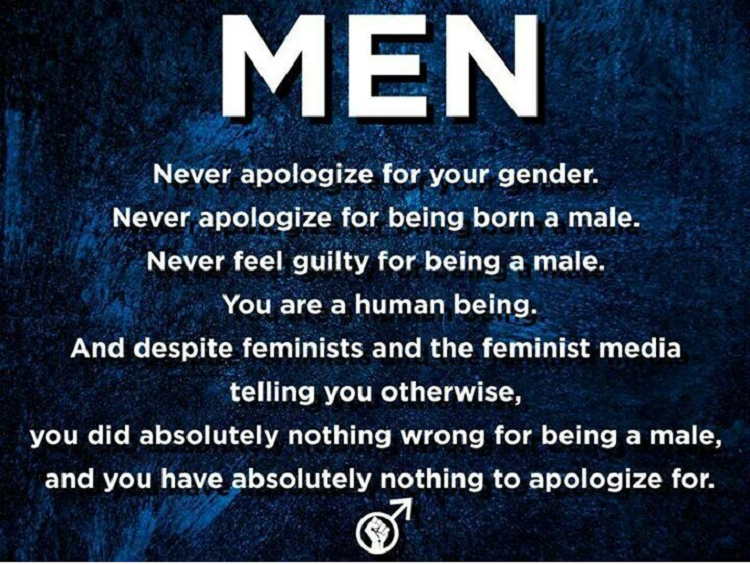
Therefore, it is better to recognize poisonous work quickly. Work.ua will help you with this by talking about three reliable signs of "toxicity".
1. The ideas of only one person or a group of people are realized
At work, as in any other social space, people are united into small groups according to age, educational background, family circumstances, personal qualities, and so on.
But if only one group or just one person gets more attention, more credibility, more validation of the value of their ideas, the rest of the team members feel underestimated. This causes gossip, envy, anger - and hence the appearance of "toxic" employees.
2. Money is the only reward
We do not deny that any person goes to work primarily to earn money. However, when money becomes the only incentive to get up in the morning and go to work, things are bad.
Even worse, if the employer motivates the subordinate to take on a new project, work overtime, become a newbie's mentor solely with the help of additional pay. And the title of “the most toxic” is given to motivation with money already paid: “Work better! Or did we accrue that New Year's bonus to you in vain?
And the title of “the most toxic” is given to motivation with money already paid: “Work better! Or did we accrue that New Year's bonus to you in vain?
If you are a leader and do not want to create or maintain a "toxic" work environment, then rather implement methods of non-material motivation.
3. Nobody develops
If you do the same type of work day after day, do not learn anything interesting and do not get new skills, then sooner or later you will feel poisoned by this routine.
Companies that want to avoid a "toxic" environment in their offices are engaged in personnel development: they organize master classes, organize exchange of experience and advanced training courses. At the same time, employees do not stand still, but help each other in the learning process, and the team becomes more united. And "toxic" companies, on the contrary, forget about additional training for employees.
Do you find yourself giving your all, yet finding yourself in an environment that is not capable of helping you thrive socially, intellectually, and physically? Perhaps it's time to turn to our Super Instruction "How to find a job" and change the situation?
Read also
- How to stop being a "toxic" employee
- What to do if you are bullied at work
- Top 3 Team Problems and How to Solve Them: Tips for Managers
Follow us on Telegram
You must be logged in to leave a comment.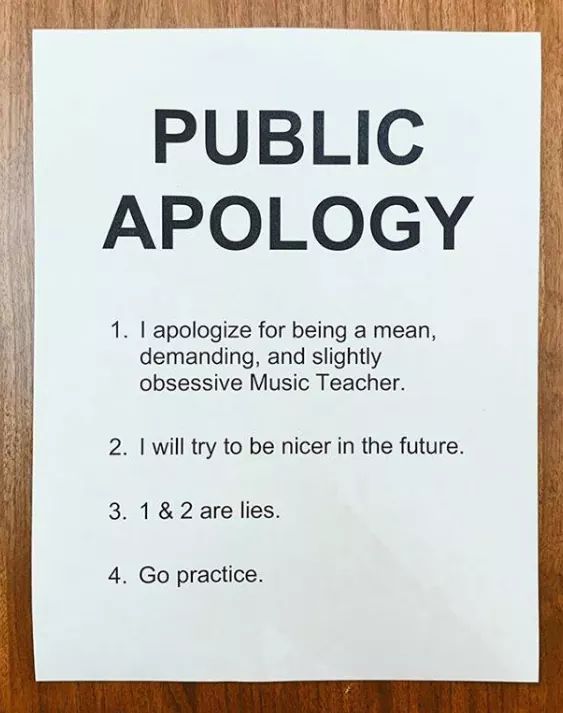
More articles
6 hobbies that make us smarter
Test task: instructions for execution
There is a toxicity problem in the machine learning community / Sudo Null IT News
Toxicity is everywhere.
Firstly , the peer review process has been violated. A quarter of the work from the NeurIPS conference is posted on arXiv. There are researchers at DeepMind who publicly harass reviewers who criticize their ICLR submission. In addition, papers from renowned institutions with arXiv are accepted at leading conferences, even if the reviewers decide to reject the paper.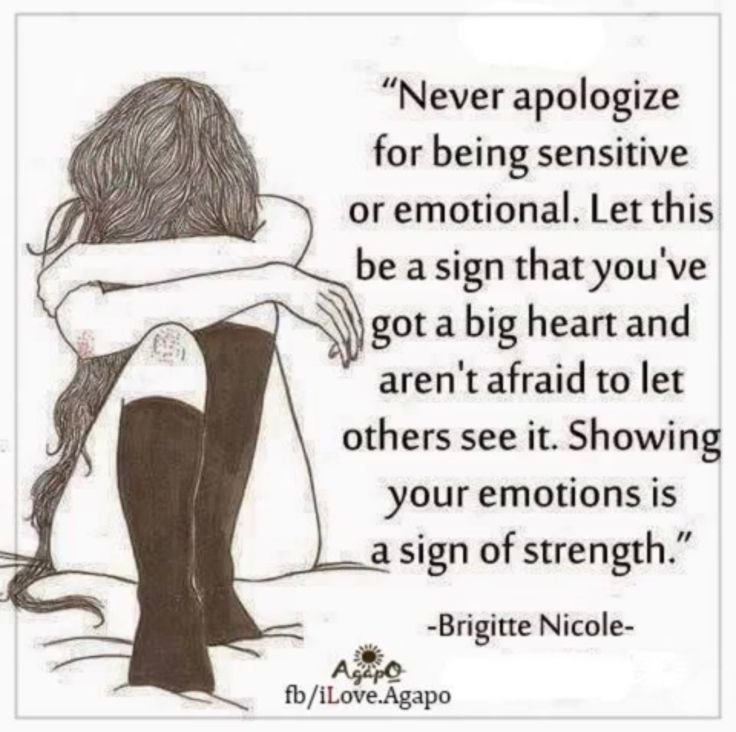 Conversely, some articles with the most positive reviews get rejected (I don't want to name any names, just take a look at this year's ICRL openreview page).
Conversely, some articles with the most positive reviews get rejected (I don't want to name any names, just take a look at this year's ICRL openreview page).
Second , there is reproducibility crisis . Apparently, hyperparameter tuning on the test set has become standard practice nowadays. Articles that do not outperform the current best method have zero chance of being accepted at a good conference. As a result, hyperparameters are tuned in subtle tricks to get a performance boost where there isn't one.
Third , there is a problem worship . Every article related to Stanford or DeepMind is hailed as a breakthrough. For example, BERT has seven times more citations than ULMfit. Belonging to Google gives the article a lot of credibility and fame. At every ICML conference, every DeepMind poster has a crowd of people in front of it, regardless of the content of the work. The same story with the Zoom meetings at the ICLR 2020 virtual conference.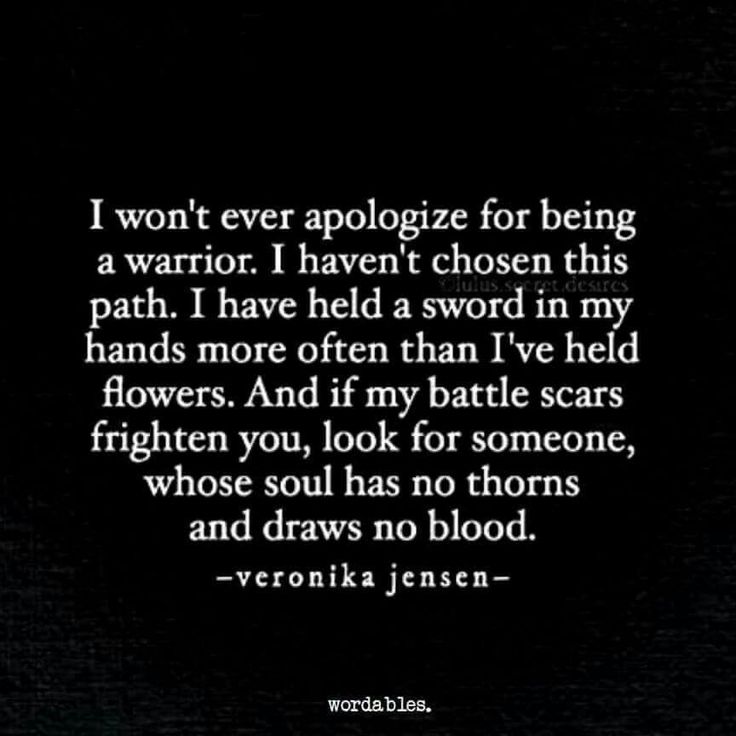 Moreover, NeurIPS 2020 attracted twice as many applications as ICML, although both conferences are top-level. Why? Why is the word "neural" so lauded? Further, Bengio, Hinton and LeCun [recipients of the 2018 Turing Award for research in the field of AI — approx. trans] are indeed the pioneers of deep learning, but calling them the “godfathers of AI” is crazy. It's already becoming a cult.
Moreover, NeurIPS 2020 attracted twice as many applications as ICML, although both conferences are top-level. Why? Why is the word "neural" so lauded? Further, Bengio, Hinton and LeCun [recipients of the 2018 Turing Award for research in the field of AI — approx. trans] are indeed the pioneers of deep learning, but calling them the “godfathers of AI” is crazy. It's already becoming a cult.
Fourth, , Yang LeCun was rather mild on the topics of bias and fairness. However, in response, he received a completely inadequate toxicity and a negative reaction. Getting rid of LeCun and shutting the man down is not the solution.
Fifth , machine learning and computer science in general have a huge inequality problem (diversity). In our CS department, only 30% of students and 15% of professors are women. Going on parental leave during graduate or doctoral studies usually marks the end of an academic career. However, this inequality is often abused as a pretext to shield some people from any form of criticism.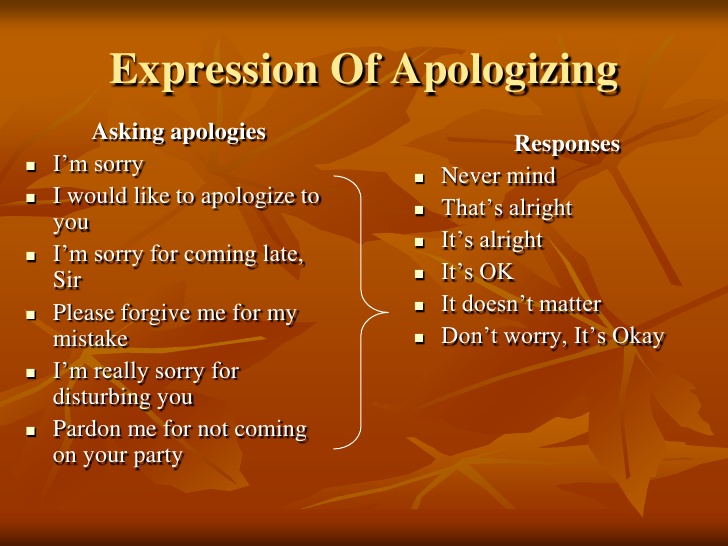 Reducing every negative comment in scientific discussion to race and gender creates a toxic environment. People are afraid to participate in discussions lest they be called racists or sexists, which in turn reinforces the problem of inequality.
Reducing every negative comment in scientific discussion to race and gender creates a toxic environment. People are afraid to participate in discussions lest they be called racists or sexists, which in turn reinforces the problem of inequality.
Sixth , morality and ethics are set arbitrarily . Any discussion is dominated by US domestic politics. At this very moment, thousands of Uyghurs are being sent to concentration camps based on computer vision algorithms invented by this community, and no one seems to care at all. Adding a "Wider Impact" section at the end of each work will not solve this problem. Heaps of crap come up when some researcher is not mentioned in the article. Meanwhile, the African continent of 1 billion people is virtually excluded from any meaningful discussion of ML (apart from a few Indaba workshops).
Seventh , the "publish or die" mentality is widespread. If you don't publish 5+ articles a year at NeurIPS/ICML conferences, you are a loser. Research groups have become so large that the supervisor does not even remember the names of all the graduate students. Some submit more than 50 papers a year to NeurIPS. The sole purpose of writing the article was to add another NeurIPS article to the summary. Quality is secondary; the main goal was to pass the preview stage.
Research groups have become so large that the supervisor does not even remember the names of all the graduate students. Some submit more than 50 papers a year to NeurIPS. The sole purpose of writing the article was to add another NeurIPS article to the summary. Quality is secondary; the main goal was to pass the preview stage.
Finally , discussions became disrespectful . International Society for Neural Networks Helmholtz Prize winner Jurgen Schmidhuber calls Royal Society member Geoffrey Hinton a thief, Ethiopian-American and co-director of the Ethical Artificial Intelligence Team at Google Timnit Gebra calls AI godfather Jan LeCun a white supremacist, Caltech professor and director of AI research at Nvidia, Anima Anandkumar calls Geometric Intelligence CEO and author Gary Marcus sexist. Everyone is attacked, but nothing improves.
Albert Einstein opposed quantum mechanics. Please, can we stop demonizing those who don't exactly share our views? Let's let people disagree without cutting their throats.